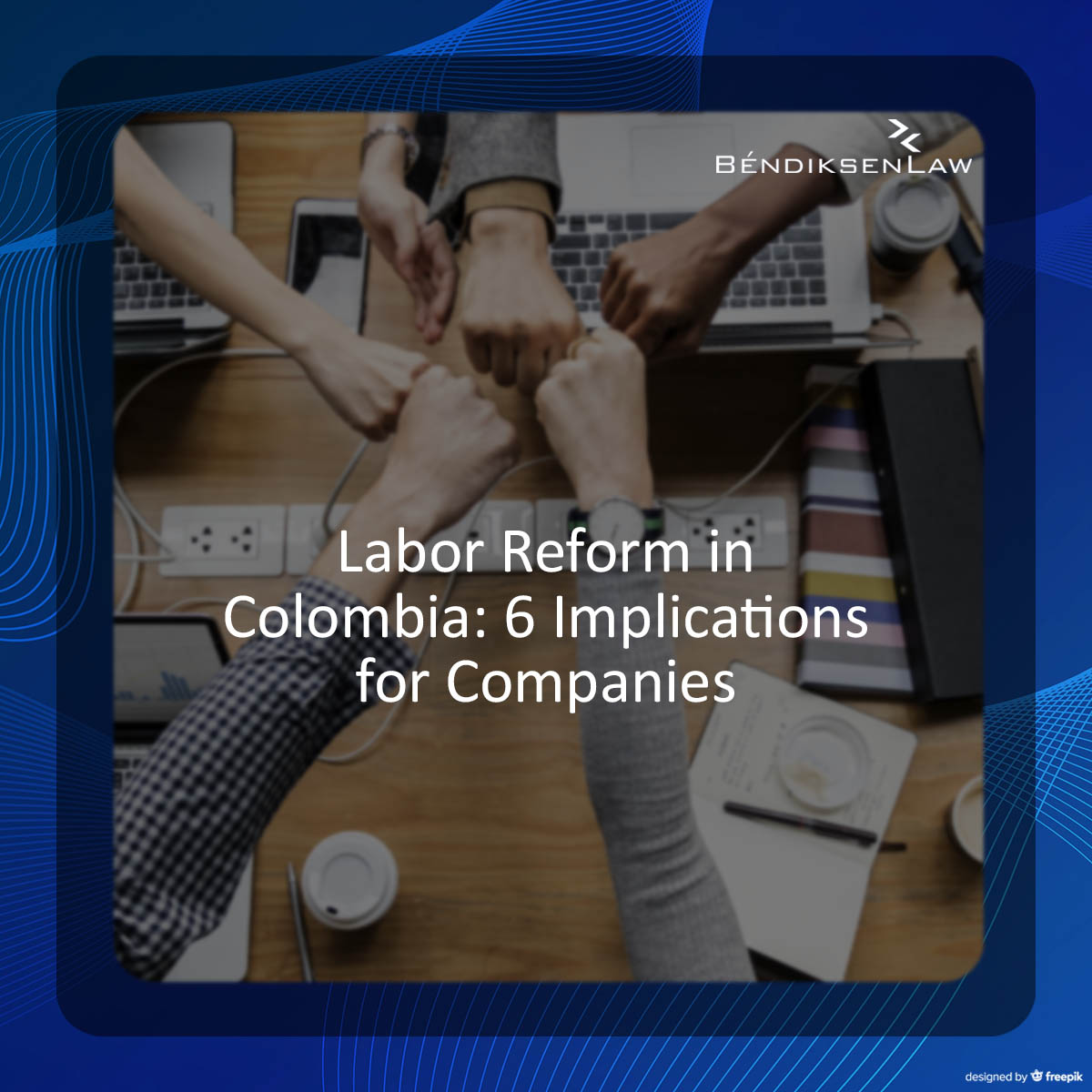The Labor Reform in Colombia is shaping up to be a crucial issue that will have a significant impact on the relationship between companies and their employees in the country. In light of this perspective, BéndiksenLaw, a law firm specialized in counsel for national and multinational companies, has conducted an informative webinar where the most relevant aspects of this reform were analyzed, revealing six key elements that will affect labor relations in companies.
1. Higher labor costs: One of the direct consequences of labor reform, according to Sebastián Béndiksen, lawyer and master of law from Universidad de los Andes and managing partner at BéndiksenLaw, will be the increase in labor costs for companies. All labor surcharges and indemnities will be affected, as well as payments associated with apprenticeship contracts. Additionally, the extension of paternity leave will also impact the operational costs of companies. An important change is the modification in the night shift surcharge payment schedule, which will start from 6 p.m. instead of 9 p.m., implying an additional cost in companies’ operations. There will also be limitations on working hours and the total time a worker can work, which will require some companies to hire new personnel to cover vacant shifts.
2. Greater job stability: The labor reform aims to provide greater job stability for workers, which will imply changes in the way companies hire. The general rule will be indefinite-term employment contracts, granting greater stability to employees. However, this will also entail higher costs for employers. Furthermore, stricter restrictions will be imposed on dismissals, including the prohibition of arbitrary or discriminatory dismissals, in which case workers will have the right to request reinstatement.
3. Limitation on outsourcing: Another relevant aspect of labor reform is the limitation on outsourcing and the hiring of temporary services. Once the provision of temporary services, which will have a maximum duration of one year, is completed, it will not be possible to extend the contract or hire with a different temporary services company. Additionally, in case of disputes, there is a possibility that the company hiring the services will be considered the true employer of the temporary workers, despite the outsourcing. This means that companies outsourcing services will have to assume greater responsibility and be prepared to face possible legal disputes questioning their role as employers.
4. Review of internal policies: Implementing the Labor Reform will require all companies to review their current contracts and internal regulations. It will be necessary to adjust dismissal processes and include aspects related to inclusion and labor rights in companies’ internal policies. For example, special attention must be given to the non-discrimination of non-binary individuals and the protection of those who change their gender identity. Additionally, almost any form of inappropriate behavior will be considered workplace violence, and companies will be required to offer flexible schedules in certain cases. These aspects, which are currently not present in most company regulations, must be incorporated to comply with updated labor regulations.
5. Job formalization: The Labor Reform includes a chapter dedicated to the formalization of jobs in various areas, such as digital platforms, agricultural work, employment for migrants, professional athletes, and domestic workers. This measure aims to promote the formalization of different economic sectors and encourage compliance with labor and social security obligations.
6. Strengthening of labor unions: The Labor Reform also aims to strengthen workers’ associations and labor unions, granting them greater facilities for their creation and operation. It is expected to be easier to establish unions and carry out strikes, with fewer opportunities for companies to declare strikes as illegal. Additionally, the consequences for those participating in illegal strikes will be reduced, and their dismissal is prohibited.
Despite the progress represented by the Labor Reform in terms of formalization and worker protection, BéndiksenLaw’s lawyers express concern that the public sector is not included in these modifications. They consider it essential to address abuses in the hiring of services in the public sector. Furthermore, the need to provide support and subsidies to companies during the transition process towards labor formalization, especially for small and medium-sized enterprises that will face a significant burden, is emphasized.
The Labor Reform in Colombia presents significant challenges and opportunities for companies. It is essential for companies to be informed and actively participate in the process of debating the legislation. There are still four pending debates in Congress, so it is crucial to stay attentive, communicate with representatives, and exert social pressure to ensure that the interests and needs of companies are taken into account in this reform. BéndiksenLaw positions itself as a source of specialized advice for companies seeking to adapt to the new legal and labor requirements.
Remember that at BéndiksenLaw, you will find the support and counsel you need to successfully navigate labor changes in Colombia. Do not hesitate to contact us for more information and to protect the interests of your company with this new labor regulation!
Watch the webinar (in Spanish)
To download the presentation (in Spanish) click here


